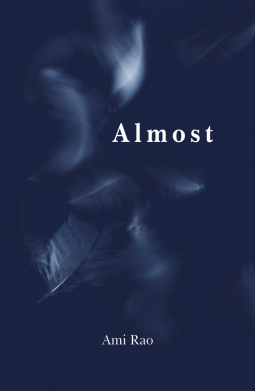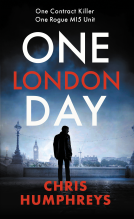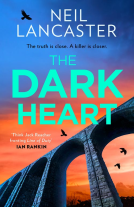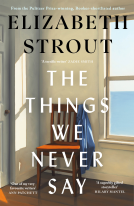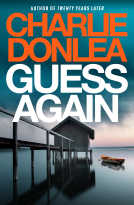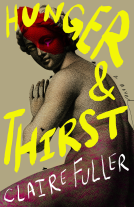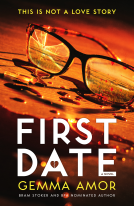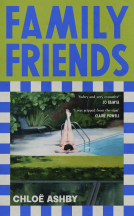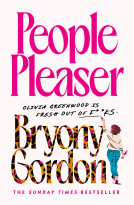Please wait... This may take a moment.
A Almost
This title was previously available on NetGalley and is now archived.
Pub Date
Mar 01 2022
| Archive Date
Mar 02 2022
Description
'He is ready to talk about her, his daughter. He is ready in a way. In a way.'
When a teenage girl dies in a car accident while returning home from school, her father is left to deal with his grief. Sent home from work for the crime of showing his emotions in front of strangers, he cannot bring himself to utter his unspoken thoughts of guilt and blame – not even to his wife. Alienated from the world and, to some degree, his own mind, and with his marriage slowly collapsing, the man starts to consider his grief.
In lyrical prose, Ami Rao experiments with language to explore grief, one of the most complex of human emotions. Inspired by the essays of Roland Barthes, this fragmented and philosophical novella is deeply moving.
'He is ready to talk about her, his daughter. He is ready in a way. In a way.' When a teenage girl dies in a car accident while returning home from school, her father is left to deal with his grief...
Description
'He is ready to talk about her, his daughter. He is ready in a way. In a way.'
When a teenage girl dies in a car accident while returning home from school, her father is left to deal with his grief. Sent home from work for the crime of showing his emotions in front of strangers, he cannot bring himself to utter his unspoken thoughts of guilt and blame – not even to his wife. Alienated from the world and, to some degree, his own mind, and with his marriage slowly collapsing, the man starts to consider his grief.
In lyrical prose, Ami Rao experiments with language to explore grief, one of the most complex of human emotions. Inspired by the essays of Roland Barthes, this fragmented and philosophical novella is deeply moving.
Advance Praise
'Strikingly original, bold and brave, Almost is a beautifully crafted story of love and loss.’ – Alan Robert Clark, author of The Prince of Mirrors and Valhalla
‘Complex, challenging and deeply moving, Ami Rao’s experimental novella, Almost, captures the raw grief of a father’s loss in a unique and truthful way; it stayed with me long after I’d finished reading.’ – Mish Cromer, author of Alabama Chrome
'Strikingly original, bold and brave, Almost is a beautifully crafted story of love and loss.’ – Alan Robert Clark, author of The Prince of Mirrors and Valhalla
‘Complex, challenging and deeply...
Advance Praise
'Strikingly original, bold and brave, Almost is a beautifully crafted story of love and loss.’ – Alan Robert Clark, author of The Prince of Mirrors and Valhalla
‘Complex, challenging and deeply moving, Ami Rao’s experimental novella, Almost, captures the raw grief of a father’s loss in a unique and truthful way; it stayed with me long after I’d finished reading.’ – Mish Cromer, author of Alabama Chrome
Available Editions
| EDITION |
Other Format |
| ISBN |
9781912054336 |
| PRICE |
$15.95 (USD)
|
| PAGES |
160
|
Additional Information
Available Editions
| EDITION |
Other Format |
| ISBN |
9781912054336 |
| PRICE |
$15.95 (USD)
|
| PAGES |
160
|
Average rating from 12 members
Featured Reviews
 Kevin H, Reviewer
Kevin H, Reviewer
5 stars
5 stars
5 stars
5 stars
5 stars
I was going to write a gushing review of this book however I feel I should write my review in the manner the book is written in.
I was worried this book was going to be a bit abstract and high brow however I was glad to be proven wrong.
It was simplistic in the most satisfying way.
Beautiful. Heartbreaking. Honest.
Thank you to the author, Netgalley and Fairlight Books for the ARC in exchange for an honest review
5 stars
5 stars
5 stars
5 stars
5 stars
 Elly M, Reviewer
Elly M, Reviewer
5 stars
5 stars
5 stars
5 stars
5 stars
A beautiful and heartbreaking study of grief. Whilst the prose at times feels sparse it is lyrical and filled with grace and dignity. This novella has stayed with me long after reading.
5 stars
5 stars
5 stars
5 stars
5 stars
Readers who liked this book also liked:
One London Day
Chris Humphreys
General Fiction (Adult), Mystery & Thrillers
The Dark Heart
Neil Lancaster
General Fiction (Adult), Mystery & Thrillers
John of John
Douglas Stuart
General Fiction (Adult), LGBTQIAP+, Literary Fiction
Repetition
Vigdis Hjorth
General Fiction (Adult), Literary Fiction
Ex Partum
emma burnett
General Fiction (Adult), Sci Fi & Fantasy, Women's Fiction
First Date
Gemma Amor
General Fiction (Adult), Mystery & Thrillers
The Pledge
Sarah Yarwood-Lovett
General Fiction (Adult), Mystery & Thrillers
